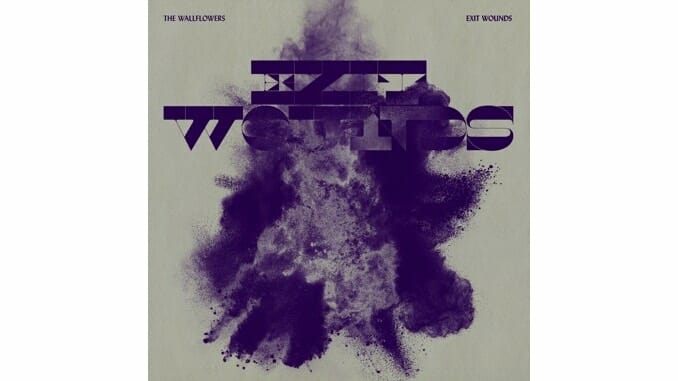The Wallflowers Stay the Course on Exit Wounds
Jakob Dylan and company have grown old comfortably, making solid but unexciting roots rock

It must be a little difficult to be a songwriter and also be the son of one of the best songwriters of all time, but Jakob Dylan has done what he can. In spite of the unavoidable comparisons to Bob Dylan, Jakob’s band The Wallflowers have created at least one perfect song in the past 30 years. It’s more than Sean Lennon has to show for himself. With a magical Tom Petty-esque groove and snarling electric guitar backing, “One Headlight” is the song in The Wallflowers’ catalogue that makes the case for just a smidge of nepotism.
Twenty-five years later, you’d be hard pressed to find a song that levels up to the organ-based groove of “One Headlight,” but there are parts of The Wallflowers’ new album that come close. Exit Wounds is Jakob Dylan’s first album since officially turning The Wallflowers into a solo project, but it’s also the strongest-sounding record he’s been involved with since 1996’s breakthrough, Bringing Down the Horse. His voice is still a mediocre rasp and his lyrics use clichés without blinking, but the songs on Exit Wounds are assembled with a newfound confidence that’s come with age.
While Jakob Dylan’s acoustic solo records, Seeing Things and Women + Country, came across half-heartedly, the refocus on roots rock suits Exit Wounds well. The sturdiest songs come in the first half, with the bluesy intro of “I Hear The Ocean (When I Wanna Hear Trains)” being an ideal example. Jakob comes across laid-back and comfortable here, but immediately drops a handful of equally forgettable and ridiculous lyrics. Take the line “I’m being handled like a pistol and a boy who plays / While lost in the saddle, two thousand miles out of range.” Jakob Dylan has never been the most distinguished songwriter, but he does sell his worst lines better than many poor lyricists can. And despite the clunky title, another early cut that stands out is “The Dive Bar in My Heart,” which features a sense of melancholy that hasn’t been found on a Wallflowers record in years.
-

-

-

-

- Curated Home Page Articles By Test Admin October 21, 2025 | 3:10pm
-

- Curated Home Page Articles By Test Admin October 21, 2025 | 2:57pm
- Urls By Test Admin October 21, 2025 | 2:57pm
- Curated Home Page Articles By Test Admin October 21, 2025 | 2:55pm
-

-

-

-

-

-

-

-

-

-

-

-

-

-

-

-

-

-

-

-

-

-

-

-

-

-

-

-

-

-

-




































